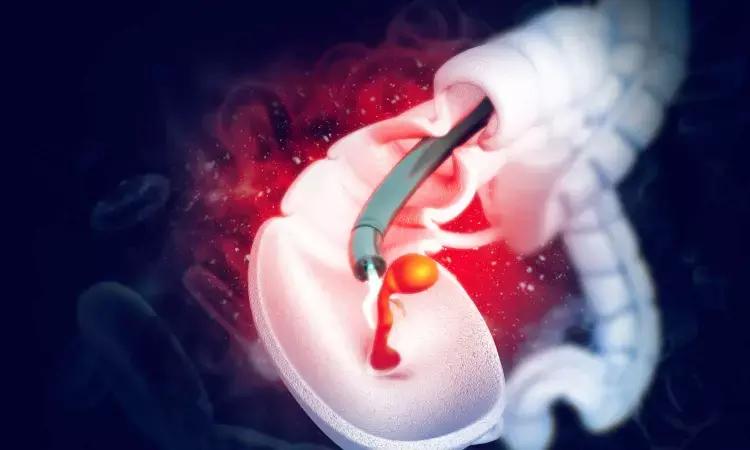Moderate To Heavy Drinking Linked To Increased Risk Of Early-Onset Colorectal Cancer
- byDoctor News Daily Team
- 02 July, 2025
- 0 Comments
- 0 Mins

The effects of alcohol vary based on age, as young people with moderate to heavy drinking habits have an increased risk of early-onset colorectal cancer by 9 & 20% when compared to light drinkers. Sex also has an important effect on alcohol consumption as blood alcohol concentrations tend to increase more in females due to lower alcohol dehydrogenase levels and a higher body fat percentage.
The study results were published in the Journal of Clinical Oncology.
Alcohol consumption is the leading cause of carcinogenesis and cancer mortality worldwide. Colorectal cancer is the third most common cancer and the second most common cause of cancer-related deaths globally. Increased alcohol consumption in young aged individuals is the leading risk factor for colorectal cancer worldwide. Colorectal cancer occurs before 50 years of age, hence researchers conducted a study to identify if modifiable risk factors like alcohol consumption have any effect on the incidence of colorectal cancer by investigating the association between daily alcohol consumption and colorectal cancer incidence.
Also Read: HIPEC addition to complete surgical resection beneficial for patients with locally advanced colon cancer: JAMA
By gathering data from 5,666,576 individuals aged 20-49 years using information from the Korean National Health Insurance Service (2009-2019), alcohol consumption levels of nondrinker, light (reference), moderate, and heavy drinkers were calculated. Consumption levels were calculated as light, moderate and heavy based on ethanol consumption (grams per day) defined as 0, <10, 10 to <30, and ≥30 g/d for men and 0, <10, 10 to <20, and ≥20 g/d for women, respectively. Multivariate Cox proportional hazards models were used to estimate adjusted hazard ratios (aHRs) with 95% CIs.
Results:
Nearly 8,314 incident early-onset CRC cases were identified during the follow-up period.
Moderate and heavy drinkers showed an increased risk of early-onset CRC compared with light drinkers.
Subgroup analysis by tumor location showed positive dose-response significance for early-onset distal colon and rectal cancers, but not for proximal colon cancer.
The dose-response association between drinking frequency and risk of early-onset CRC was significant with a 7%, 14%, and 27% increased risk for 1-2, 3-4, and ≥5 d/wk compared with nondrinkers, respectively
Thus, this nationwide population-based study is the first of its kind to show that graded increasing amounts and increased frequency of alcohol consumption were associated with an increased onset of early-onset colorectal cancer.
Further reading: Sex and Tumor-Site Differences in the Association of Alcohol Intake With the Risk of Early-Onset Colorectal Cancer. DOI: 10.1200/JCO.22.01895 Journal of Clinical Oncology 41, no. 22 (August 01, 2023) 3816-3825.
Disclaimer: This website is designed for healthcare professionals and serves solely for informational purposes.
The content provided should not be interpreted as medical advice, diagnosis, treatment recommendations, prescriptions, or endorsements of specific medical practices. It is not a replacement for professional medical consultation or the expertise of a licensed healthcare provider.
Given the ever-evolving nature of medical science, we strive to keep our information accurate and up to date. However, we do not guarantee the completeness or accuracy of the content.
If you come across any inconsistencies, please reach out to us at
admin@doctornewsdaily.com.
We do not support or endorse medical opinions, treatments, or recommendations that contradict the advice of qualified healthcare professionals.
By using this website, you agree to our
Terms of Use,
Privacy Policy, and
Advertisement Policy.
For further details, please review our
Full Disclaimer.
Tags:
Recent News
Chennai: Fortis Healthcare Opens 250-Bedded 2nd Mu...
- 06 July, 2025
New Lab-On-A-Chip, Cheaper, Faster, On The Spot Di...
- 06 July, 2025
Daily Newsletter
Get all the top stories from Blogs to keep track.


0 Comments
Post a comment
No comments yet. Be the first to comment!